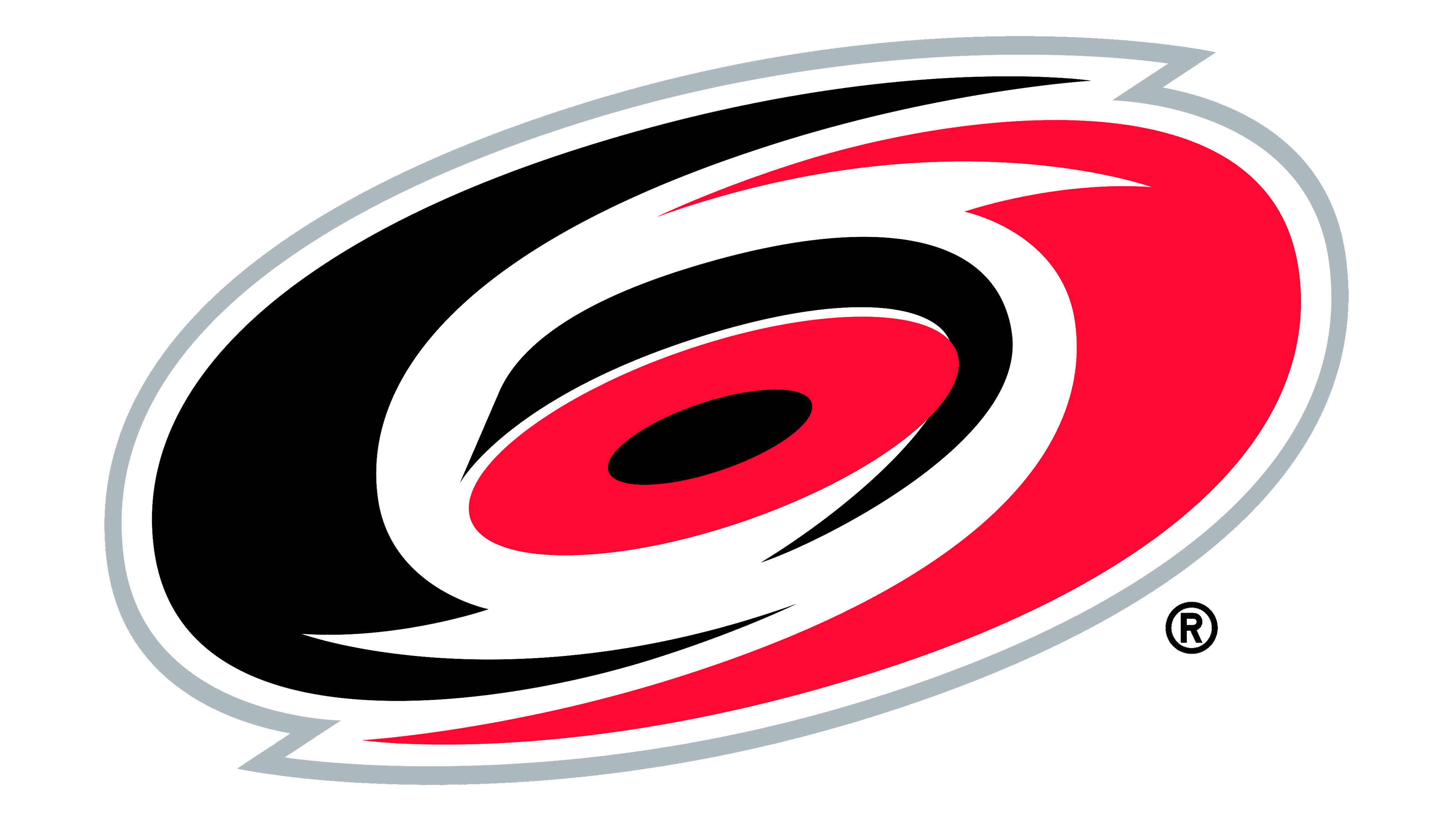Carolina Hurricanes Logo
Based in Raleigh, North Carolina, the Carolina Hurricanes excel in professional ice hockey. They’re a notable part of the NHL’s Eastern Conference, specifically the Metropolitan Division. Home matches take place at Raleigh’s PNC Arena. Entrepreneur Tom Dundon owns the team, with Don Waddell overseeing operations as General Manager. The coaching strategies are spearheaded by Rod Brind’Amour. The team, known for its dynamic play, has a passionate fan base. Their journey in professional hockey reflects a blend of skill, teamwork, and strategic play.
Meaning and history
The Carolina Hurricanes, originally the New England Whalers, formed in 1971 in the World Hockey Association (WHA). In 1979, they joined the NHL, becoming the Hartford Whalers. The team relocated to North Carolina in 1997, adopting the name Carolina Hurricanes. They play at the PNC Arena in Raleigh, North Carolina. Known for a vibrant fan base, they bring energetic hockey culture to the region.
In their history, the Hurricanes have experienced a mix of triumphs and challenges. They clinched their first Stanley Cup in 2006, a landmark achievement. The team is recognized for a dynamic, fast-paced style of play. They’ve fostered numerous talents, contributing significantly to the NHL. The Hurricanes are part of the Metropolitan Division of the Eastern Conference.
Off the ice, they engage in community initiatives, fostering local support. Their journey reflects resilience, adaptability, and a deep connection with their fans. The Hurricanes continue to evolve, striving for excellence in the competitive world of professional hockey.
What is Carolina Hurricanes?
Forged in 1972, the Carolina Hurricanes thrive as Raleigh’s NHL crusaders, wielding sticks in the ice dance. Esteemed for heart-pumping matches and a steadfast sea of fans, they ascended to Stanley Cup glory in 2006.
1972 – 1979
The logo features a bold, circular seal with a harpoon bisecting the letter “W” set against a green backdrop. Encircling this central design, the words “New England Whalers” are prominently displayed in a striking white band, exuding a classic yet assertive aesthetic. The harpoon and “W” combination cleverly symbolizes the team’s name and maritime heritage, imparting a sense of motion and precision.
1979 – 1992
In this evolution of the logo, the design is streamlined, focusing on a stylized “W” in green, cradling a blue whale tail. The emblem sheds any additional text, opting for a cleaner, more graphic approach that merges the letter with the tail in a seamless visual pun. This minimalist aesthetic resonates with a modern look, emphasizing the team’s maritime connection through color and form.
1992 – 1997
The rendition adds a sleek, silver outline to the existing design, giving a three-dimensional effect. The iconic green “W” and blue tail maintain their fusion, symbolizing both a whale and a letter. This update signifies a modern twist, adding depth and contemporary flair to the team’s emblem.
1997 – 1999
The logo features a striking swirl of black and red, encapsulating the ferocity and dynamic motion of a hurricane. At its heart lies a negative space eye, the calm within the storm, set against the contrast of a silver-grey outline that gives depth and sharpness to the design. This emblem is a bold representation of the Carolina Hurricanes, symbolizing both a natural whirlwind’s power and the intense energy of the hockey team. The streamlined design conveys movement and impact, reflecting the team’s aspirations and their geographical namesake.
1999 – Today
The colors in this latest version are more vibrant, with the red becoming richer and the black deepening to create a striking contrast. This enhancement in color saturation gives the logo a more contemporary and visually impactful presence, reflecting the energy of the team and their play style.
















